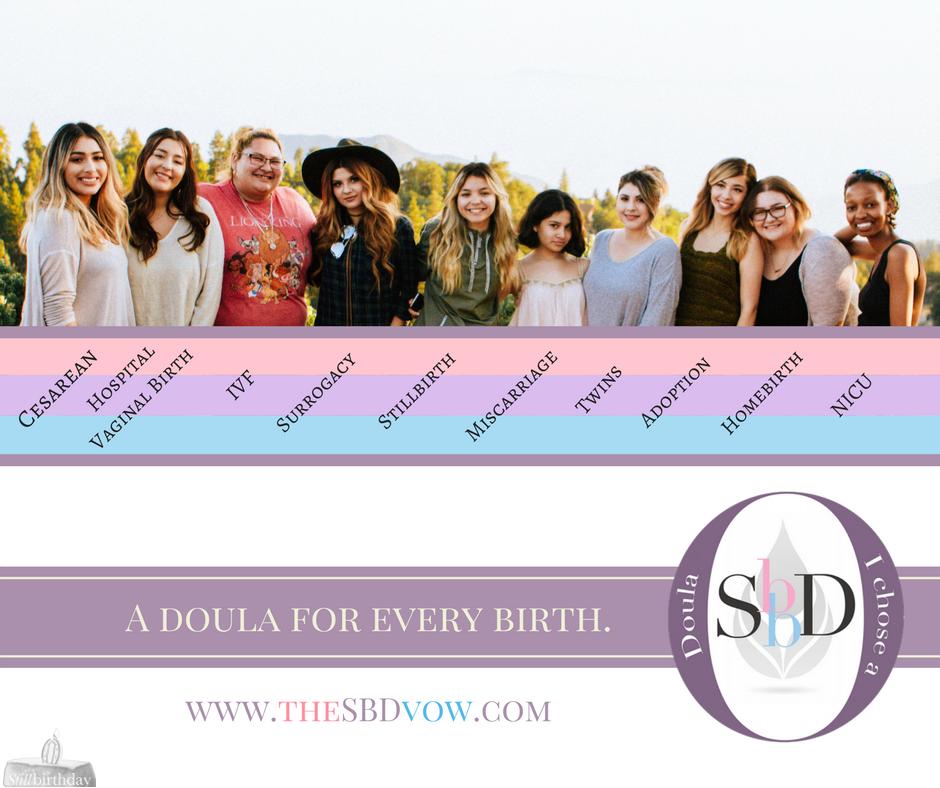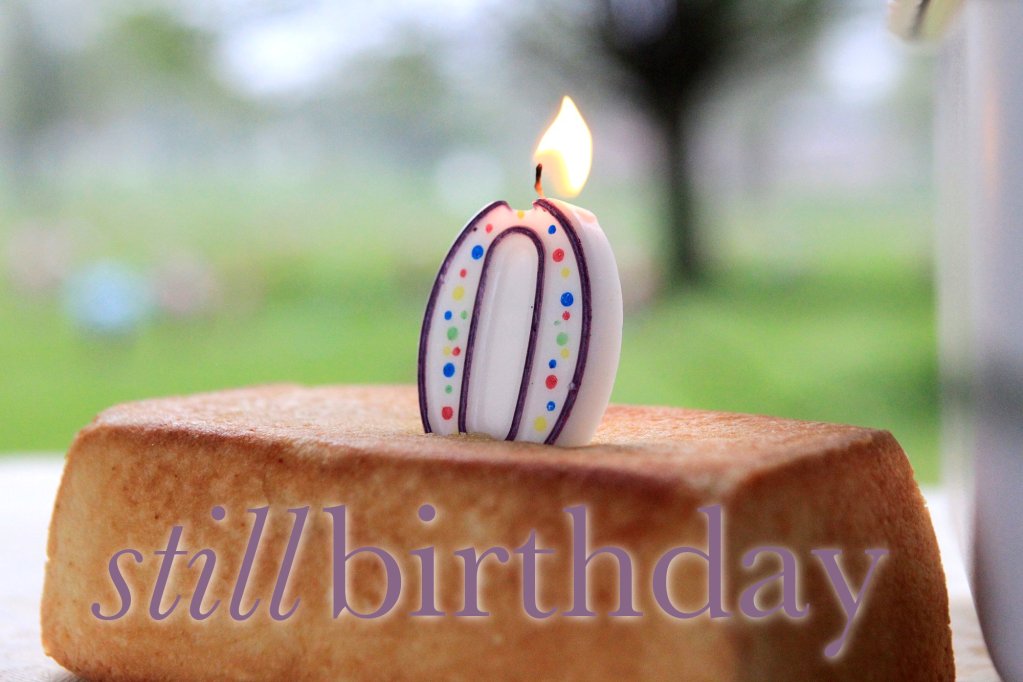Archives for March 2012
More Than a Period
The smallest person ever to be born was just about the size of a period at the end of a sentance Amazing, isn’t it? And yet he received no accolades, no newspaper headlines, no spot in the Guinness World Records Why is this?
Is it because virtually every minute another person around the world shares this amazing feat? Is it because he’s too small for us to see without a microscope? Is it because his birth was quiet? Is it because he wasn’t actually alive during the birth? Who is it inconveniencing, to validate his birth – to let his family validate his birth?
Mothers of pregnancy loss will tell you that periods matter However small, however fleeting, they are important In fact, don’t we all look for them, expect them, notice when they’re missing?
Yes, even the earliest pregnancy loss is more than just a period It is still a birth It is still a birthday And that person, no matter how physically small, is still valuable He is still worthy to be grieved, especially by his or her mother and family
Period
This is My Farewell
Told by: Lynne
My first child was a twin. I didn’t find that our for many years–31 to be exact. I bled the first few months I knew I was pregnant. I didn’t think much about as my mother bled through both pregnancies with her sons born 8 and 11 years before I was born. I had a troubled delivery. I nearly bled to death until some bright nurse decided pitocin was necessary in i.v. form. Problem was, my veins were collapsing and until the very last minute, I believe, an open vein was found. I was given 2 units of blood. I bled those out. While trying to cope with my first child still under Billi lights in the hospital nursery, I attempted to recover from an anal rip that took 2 hours and 45 minutes to repair. Finally, baby came home. I still continued to be in pain–location: lower abdomen. After having my pregnancy m.d. remove a fecal impaction, I still remained in pain and bleeding heavily. At no time did anyone , nurse or doctor feel my lower abdomen. On my way back into the m.d.’s office, I stopped for a blood test to check anemia. I had an overwhelming urge to vomit and go potty at the same time, so I used the bathroom in the lab. Now I know what I saw was my other child’s placenta (I know this was not born child’s placenta, as I viewed it up close and personally at my son’s birth. It was a picture-perfect placenta.). At the time, I wanted to grab what I saw and take it up to the m.d.’s office, but the lab tech told me I could not extract it from the facility. Last year, a very dear person was talking of her daughter’s birth. By that time, ultrasound readily was used. She described the same scenario as I had above, but her m.d. had modern technology on his side and found the unoccupied placenta. She immediately had a D&C to remove placenta.
This is my farewell to my son or daughter thirty-two years later; actually 32 years, 7 months and 18 days later. I really had odd feeling of missing a babe when my next preemie son was born, 2 days less that 2 years later. I believe I was mourning the passing of the missing twin from prior pregnancy. 15 months later, I gave birth to a healthy, 40 week pregnancy, baby boy. No matter whether this happens to you and you know immediately or like me, 31 years later, its still the same; nothing changes. You miss your unborn child and don’t let go ’til you say ”good-bye”.
Public Displays of Affliction
I recently read an extremely biased and negative article regarding public grieving. In this article, the author made it clear that her view is that all public grieving is disturbing. Because I do not want to promote this distasteful, uneducated article, I won’t be linking to it here, but I’ll tell you that she included the following examples as being disturbing:
- Jay-Z wrote a song about miscarriage and embracing his live daughter after the miscarriage experience.
- The Duggar family shared photos of their miscarried baby with their loved ones.
- Loss mothers grieve on Facebook.
The question isn’t just if we loss mothers can go too far with our online grieving, but what is it about public grieving that is uncomfortable for those around us?
Take it from Babies
When a baby is hungry, is scared, has a dirty diaper, is bored, is cold or is hot, the baby cries. The baby will cry until his needs are met – and these are all needs, even if some of them may seem subjective.
If the mother does not respond to the baby, the baby will continue to cry. In addition to the original need, now the baby senses danger. The baby becomes scared that his mother is not responding. The brain fills with neuron killing cortisol, the baby’s basic trust in his environment is undermined, and the baby is thrust into a fight-or-flight response. This stress potentially causes a lifetime of heightened stress reactions to even everyday situations, and a lifetime inability to control anxiety. Additionally, the mother’s role of loving and protecting becomes endangered; if the mother ignores her baby’s crying, she is more likely to ignore his more subtle cues of pain and distress.
The baby will eventually quiet – not because he is satisfied or well, but because he is processing this compounded stress, and trying to assimilate his unsafe world.
The fact is that caregivers who habitually respond to the needs of the baby before the baby gets distressed, preventing crying, are more likely to have children who are independent than the opposite (e.g., Stein & Newcomb, 1994). In short, ignoring a baby’s needs causes the baby psychological damage – and not just in the privacy of his crib, but everywhere, every day.
When loss mothers are ignored, when we cry and nobody responds to us, when they slam the door and tell us that we are inconveniencing them, our grief becomes compounded by the feeling of abandonment. The original need we had – to mourn our children – is joined by the unmet need of validation, love, and respect – and we respond to this intensified stressful situation much the same as babies with unmet needs do – it carries into our everyday lives, and doesn’t stay hidden within the walls of our home. Ignoring grieving mothers until they feel they are unsafe to talk about it has been our approach for far too long. Now that we are finally beginning to provide the needed care that mothers deserve, we should not revert back to ignoring and shoving grieving mothers into silence.
It’s Not a Prank
Mothers have no control over the appearance of their miscarried or stillborn babies. Changes to the physical form of the baby take place immediately and rapidly once the baby dies. Some babies have skin peeling, they have discoloration, they frankly have an appearance that might not be found on a Gerber jar. When mothers share these photos, they are in no way attempting to gross you out or disturb you, nor or they pretending not to notice what their children might look like to you. They are seeing past these physical changes into the reality that this is their child. They are asking you to reach into your heart and ask yourself what it would be like to live the rest of your life knowing that your child is dead. They are asking you to see that this child mattered, and matters, and is a real part, a missing part, of their everyday family.
Before you tell a loss mother that the way she is grieving is disturbing you, consider asking yourself if the reason it is disturbing is something not on her part, but on yours. Are you empathetic by nature? Do you value children by nature? Do you have children? Have you ever lost a child? Have you ever imagined what your life would be like if one of your children died – regardless of how old they may be? Have you experienced the death of a close family member before? How did you work through it? When was the last time a friend called you or sought you out to help them in their time of pain? Take note if you find it difficult to remember a time in which this has happened, and if you do remember, take time to reflect on the compassion and empathy you provided to them. When was the last time you needed empathy? Did you receive it, or not? How did that feel?
If you cannot respond politely, than politely do not respond.
With all of that said, there are respectful ways to share our grief publicly, and us loss moms would do well to remember:
Don’t Play Red Rover
Anger can be a natural part of our grieving process. Sometimes, anger toward the care provider may seem warranted. If your provider was a doctor, and you feel that the care you were given was poor, it can be tempting to search out midwives or those who believe in less medical involvement around pregnancy. These unsuspecting midwives will encourage natural methods in pregnancy in general – but likely do not know what your heart is carrying and that the care you need is much deeper than distancing yourself from medical support. Likewise, if your provider was a midwife, it can be tempting to search out doctors or other medical professionals who believe in more medical involvement around pregnancy. These unsuspecting doctors will encourage more medical methods in pregnancy in general – but likely do not know what your heart is carrying and that the care you need is much deeper than distancing yourself from less medical support.
I encourage you – if you are upset with your provider at all, please do not petition other providers of different perspectives to elicit their complaints about the care you received during your loss. This is not as healing as you think it might be, and can end up confusing you and even leaving you feeling used by the very people you sought to help you.
If you are a professional in pregnancy (midwife or doctor) who has been approached by a loss mom eliciting complaints about the experience she endured, please refer her to grief support services. Later, after she has worked through her grief, she would be in a better place to decide whether pursuing more information around her birth experience would be beneficial to her.
Remember Your Wedding
Consider your wedding. You may have had a professional photographer, and you may have shared many of your wedding photos with others. You may have shared a great deal about your wedding day – but, the wedding night, was reserved for just you and your husband. You may have posted a photo of the wedding dress on the internet, but you didn’t post a photo of your nightgown, as beautiful as it was, because it was just for your man to see. The same is true with our children, whether they are alive or not. There should be some parts of their lives that we are willing to keep private, as special little moments or memories just within the family. We can still speak to the very real life and the very real death of our child without intentionally exposing others to things they might feel overwhelmed with. Let others know ahead of time that you are going to share a particularly shocking photo, for example, and surround yourself with people who will speak lovingly and empathetically to your broken heart; these are people who can also help give positive and helpful information to anyone who may respond negatively or hurtfully to you.
Most importantly, put yourself in a safe place before you share.
Get into a Safe Place
There are many places designated as safe for sharing about our losses. Online groups, local groups within your community, and stillbirthday are all safe places to share. Here, we can hold your precious photos and your most intimate words. Comments are moderated and nobody is allowed to leave a mean or hurtful remark. Content cannot be duplicated by others, and people come here knowing what to expect to see. Public grieving can get real tricky real fast.
Protect yourself by not exposing your heart to others who may not be prepared to provide you with the love and respect you deserve.




